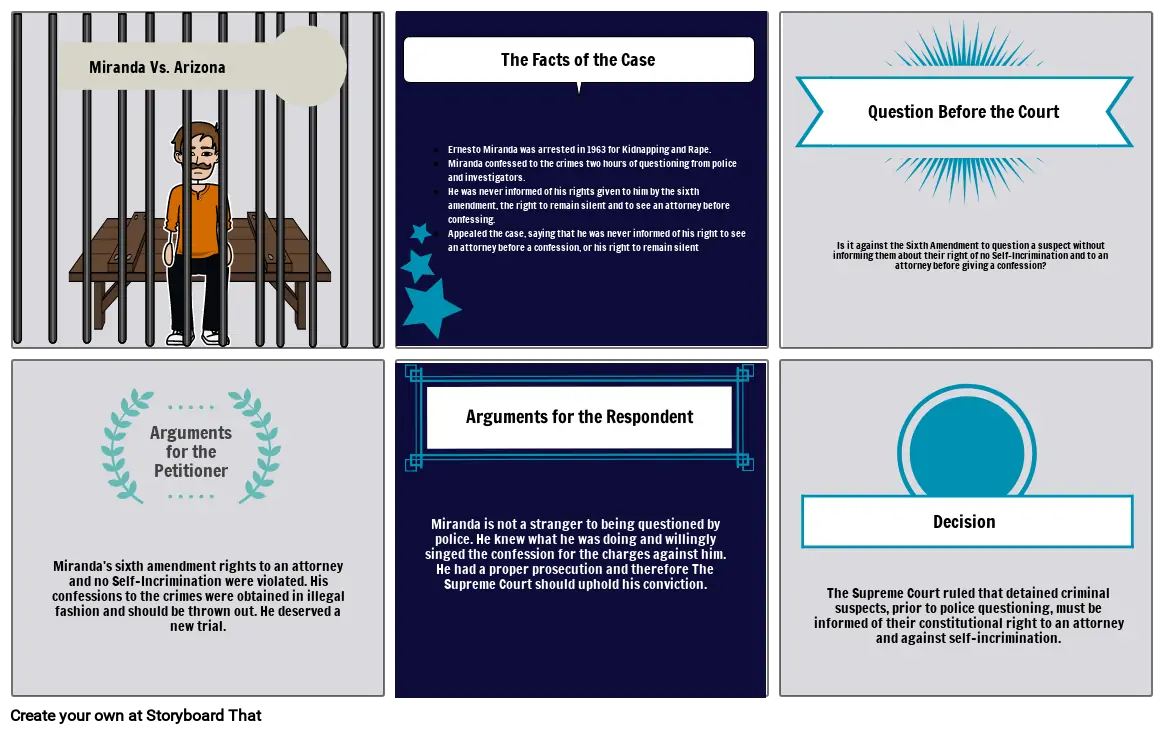Mirana v. arizona

Storyboard Text
- Miranda Vs. Arizona
- The Facts of the Case
- Ernesto Miranda was arrested in 1963 for Kidnapping and Rape.Miranda confessed to the crimes two hours of questioning from police and investigators.He was never informed of his rights given to him by the sixth amendment, the right to remain silent and to see an attorney before confessing. Appealed the case, saying that he was never informed of his right to see an attorney before a confession, or his right to remain silent
- Question Before the Court
- Is it against the Sixth Amendment to question a suspect without informing them about their right of no Self-Incrimination and to an attorney before giving a confession?
- Arguments for the Respondant
- Miranda's sixth amendment rights to an attorney and no Self-Incrimination were violated. His confessions to the crimes were obtained in illegal fashion and should be thrown out. He deserved a new trial.
- Arguments for the Petitioner
- Arguments for the Respondent
- Miranda is not a stranger to being questioned by police. He knew what he was doing and willingly singed the confession for the charges against him. He had a proper prosecution and therefore The Supreme Court should uphold his conviction.
- The Supreme Court ruled that detained criminal suspects, prior to police questioning, must be informed of their constitutional right to an attorney and against self-incrimination.
- Decision
Over 30 Million Storyboards Created
No Downloads, No Credit Card, and No Login Needed to Try!
